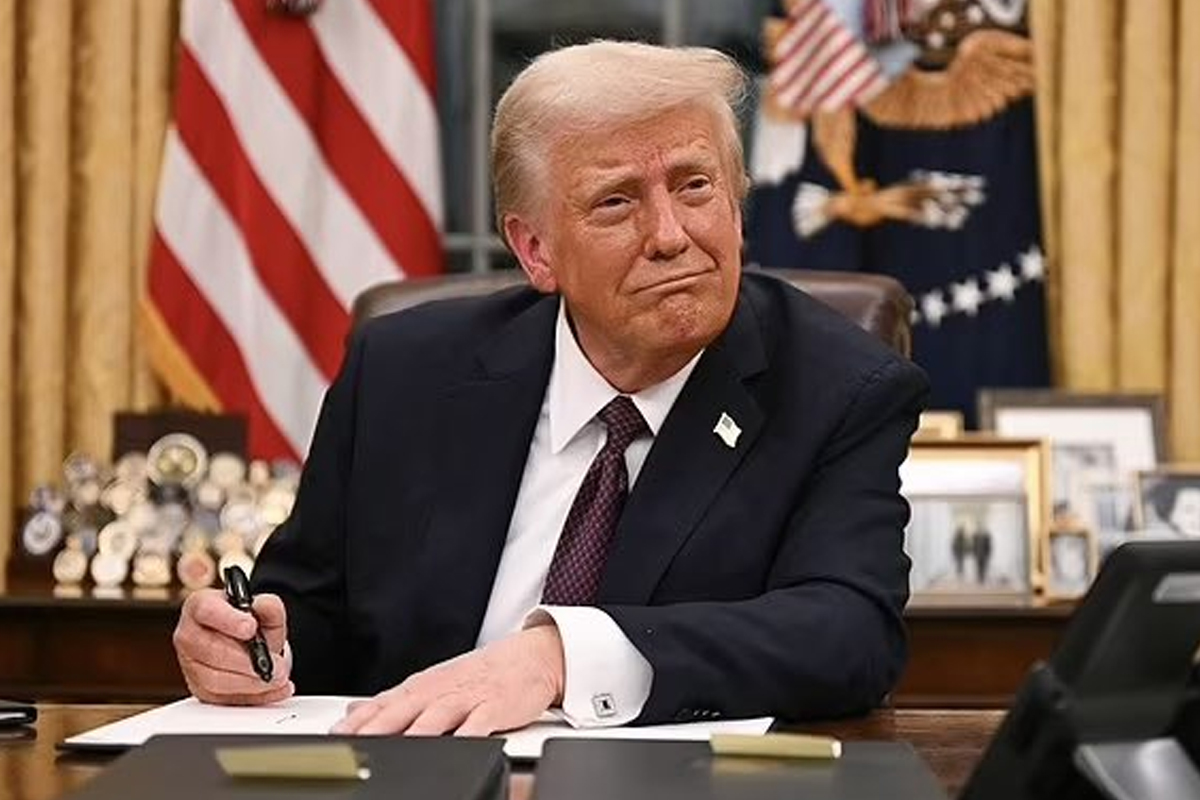The Trump administration has announced an extraordinary offer to federal workers: resign by 6 February and receive eight months of pay and benefits. This proposal has ignited debates surrounding its legality and fairness, with many questioning the motives and influences behind it.
What Is the Buyout Offer?
This initiative emerges as part of Trump’s drive for a leaner federal workforce—currently at around 2 million employees—following his directive to end remote work. According to a memo circulated on Tuesday via the administration’s mass email system:
‘The President required that employees return to in-person work, restored accountability for employees who have policy-making authority, restored accountability for senior career executives, and reformed the federal hiring process to focus on merit.’
The email explains that employees who accept the buyout will have their duties either reassigned or eliminated, after which they will be placed on paid administrative leave until the end of the deferred resignation period.
‘If you choose not to continue in your current role in the federal workforce, we thank you for your service and will provide a dignified, fair departure through the federal deferred resignation programme,’ the memo adds.
Officially, the aim is to reduce the workforce to only ‘reliable’, ‘loyal’ and ‘trustworthy’ employees. The buyout scheme is available from 28 January until 6 February.
However, under federal guidelines, only employees who have completed at least 12 months of continuous service and who were not dismissed for poor performance or misconduct are eligible for severance pay. Officials estimate that 5 to 10% of federal employees could accept the offer—equating to approximately 6,000 to 13,000 resignations among the 130,000 federal workers in Texas alone. According to NBC News, the programme could save the government around £80 ($100) billion.
Who Does This Programme Benefit?
Not all federal employees qualify for the buyout. Those working for the US Postal Service, the Armed Forces, immigration enforcement, national security, and other agencies explicitly excluding the offer from their personnel are not covered.
Elon Musk’s Rumoured Involvement
Although no official confirmation has been provided, speculation about Elon Musk’s influence continues to grow. Musk heads Trump’s Department of Government Efficiency and has previously championed reducing the federal workforce. Former X employees have noted parallels with an earlier buyout they received in 2022—under the email subject line ‘Fork in the Road’—when Musk downsized that company. Many suspect Trump’s administration mirrored Musk’s approach, although the precise extent of Musk’s involvement remains unclear.
Politicians and Unions Speak Out
The National Treasury Employees Union issued a warning to its members, stating: ‘Make no mistake: this email is designed to entice or scare you into resigning from the federal government.’
Senator Tim Kaine also urged workers to reject the offer: ‘Don’t be fooled. He’s tricked hundreds of people with that offer. If you resign, he’ll stiff you—just like he stiffed contractors. He doesn’t even have the authority to do this.’
One federal employee told CNN that colleagues are ‘variously stunned, pissed, baffled and a bit scared’ by the proposal.
Workers’ Representatives Slam the Offer
Union leaders argue that the buyout is nothing more than a political purge dressed up as an incentive programme. Everett Kelley, president of the American Federation of Government Employees (AFGE), condemned it as ‘a direct attack on career civil servants’, warning that it would sow ‘chaos for millions of Americans who rely on federal services’.
The AFGE represents roughly 800,000 federal workers. Kelley highlighted that the size of the federal workforce has remained comparable to levels in 1970, despite a substantial increase in the population’s reliance on government services. He believes the Trump administration’s strategy has less to do with efficiency and more to do with rebuilding the federal workforce in line with its own preferences.
‘This offer should not be viewed as voluntary,’ Kelley cautioned. ‘The Trump administration’s goal is to turn the federal government into a toxic environment where workers cannot stay even if they want to.’
While reducing the federal workforce could theoretically curb government spending, it leaves employees facing an uncertain future. Legal experts and union leaders warn that this buyout may be vulnerable to legal challenges, intensifying the anxiety felt by thousands of public servants.







